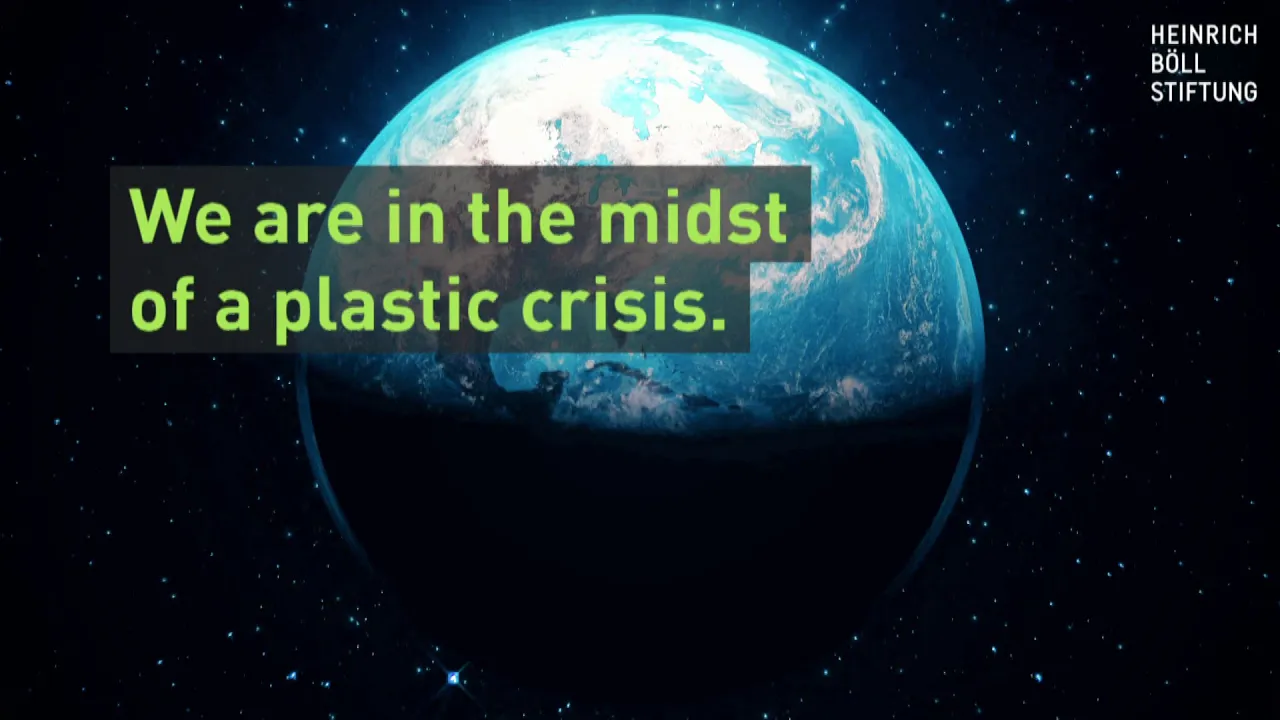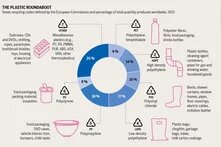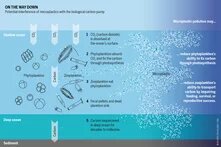Plastic Atlas
Facts and figures about the world of synthetic polymers

A world without plastic?
The Plastic Atlas has the hard facts, data and figures to prove that the story of plastic that industry is telling us is a myth. We need urgent and drastic reductions in plastic production and consumption and regulation at the local, national and global level that tackle plastic pollution at the source.
Politics must hold the plastic industry accountable.Barbara Unmüßig
Global Contributions
All infographics from the Plastic Atlas
Download now!The solutions to the plastic and climate crisis need to go hand in hand.Lili Fuhr
Films on plastic
This is how the Delaperrière family goes shopping. By buying this way, they gener-ate very little waste. The family used to throw out two large bags of trash a week. That has gone down to one small bag a month.
Marjun and Anne are paying for their canoe trip in an unusual way – with rubbish. Today is World Cleanup Day, and here in Copenhagen, they are collecting rubbish. The firm that rents out the canoes is one of over 100 companies that are supporting the cleanup effort.
Kai Schächtele: "We separate our rubbish and throw it into the right bins, and we think, ok, a disposable coffee cup is not the best, but if we dispose of it properly, we’ve done everything right – after all, it will be recycled. But in fact we are kidding ourselves, because a lot of the rubbish we generate doesn’t stay here but ends up somewhere else in the world."
Further Reading
About the Plastic Atlas
In 19 chapters, our Plastic Atlas deals with very different aspects of plastic, illustrated by infographics. The Plastic Atlas looks at rising global plastic production fueled and expanded by cheap cracked natural gas. The USA alone plans to increase its plastic production by 30 percent in the next few years. Because 99 percent of all plastics are produced from fossil fuels such as oil, gas and coal, the climate-damaging emissions along the life cycle of plastics are enormous. The Plastic Atlas explains this cycle from extraction, processing and use to disposal and the resulting problems.
Plastic waste is a lucrative business
The question of plastic waste naturally plays an important role in the Plastic Atlas. In order to stop the plastic flood, current efforts are concentrating primarily on waste management and consumers. This plays into the hands of the plastics industry, because it can shift the responsibility for the plastics crisis onto consumers and at the same time point the finger at Southeast Asia, which suffers the most from the garbage. Because the trade with plastic waste is a lucrative business and a large part of our plastic waste from Europe and other industrial countries is exported there.
More recently, we have realised that plastic is also an acute - and even deadly - threat to human health. And not only for people, for almost every organism on this planet, plastic has harmful consequences that can cause damage to the immune and reproductive systems, the liver and kidneys, and even cancer. The Plastic Atlas deals with plastics and health and also with the question of how women and men are affected in different ways.
Plastic Atlas also shows solutions
Nevertheless, there is reason for hope. The Plastic Atlas introduces the growing global movement Break Free From Plastic, which tackles the problem at its roots, holds those responsible accountable and contributes to the emergence and growth of zero waste cities and communities around the world. A new global plastics convention could prevent growing pollution from plastics at all stages of the production cycle as well as harm to human health.
A world without plastic pollution is a vision worth fighting for. Because plastic is an issue that concerns and moves each and every one of us. And we have only just begun to understand the enormous dimensions of this crisis. A change of course requires a sound knowledge of the causes, drivers and effects of the plastics crisis and the plastic atlas.





















